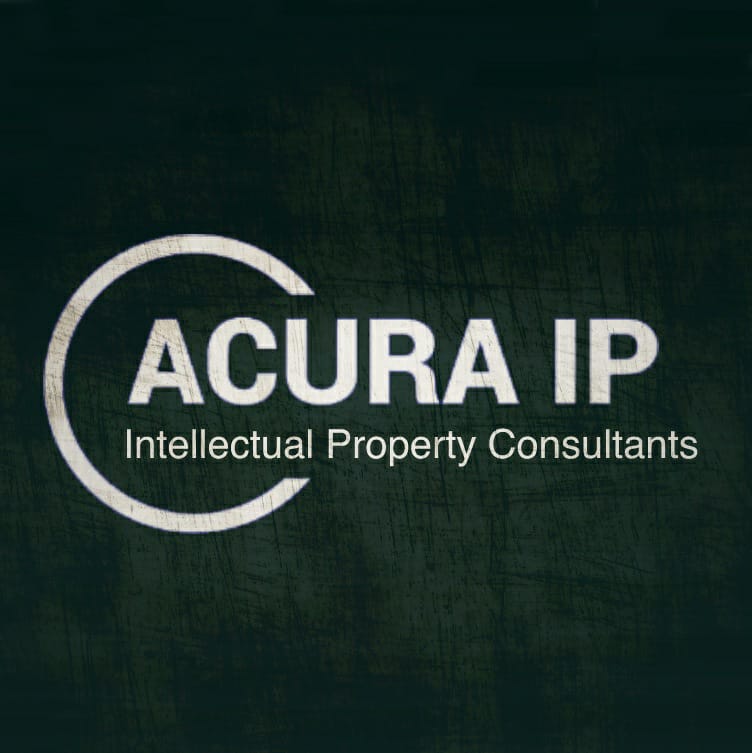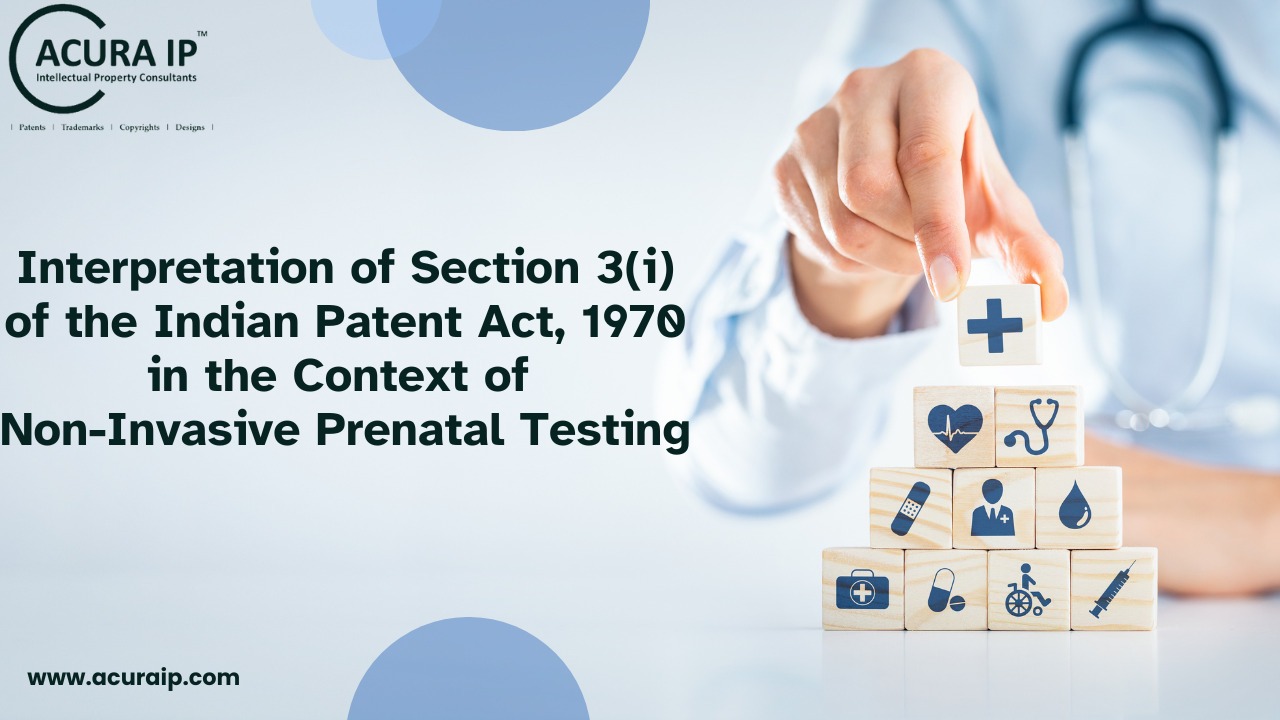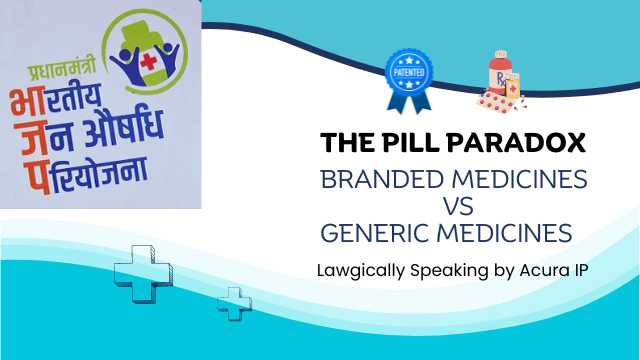
Patent Fees in India
As an inventor, one of the main factors which you would consider before deciding to file a patent is the costs associated with the patent filing for your invention. Generally, there are two types of costs involved, one is a professional fee which is paid to a patent agent or a patent attorney for availing any of the services such as conducting a novelty search, drafting the patent specification, and carrying out any other action in front of the Indian Patent Office on behalf of you. The cost incurred on account of the professional fee may vary greatly depending on the rates charged by a firm or a patent agent.
The official fee on the other hand is pre-determined and varies mainly based on the type of applicants. For instance, one set of official fees is applicable to individuals, startups, small entities, and educational institutions, and another set of fees is applicable to applicants who do not fall under the first category.
You can access the exhaustive list of official fees published by the Indian Patent Office here. For easier and more ready understanding, this article analyses the applicable official fee at each stage of the patent process.
Patent Fees at Each Stage of Patent Filing Process
Before we list out the official fee for various requirements, it is essential that you understand the typical stages involved in the patent filing process.
Stage 1: Involves initial discussions with the patent agent or the patent attorney to decide the best course of action for filing a patent. Generally, before deciding to file the patent, conducting a patentability search may be advised to determine if the invention is novel or not. Based on your requirement, you may either proceed to conduct a patentability search or proceed directly to file the patent application.
Stage 2: Here you may decide whether to file a provisional patent application or a complete patent application. If the details of the invention is not finalized and if you are in a hurry to secure a priority date, then the concerned patent agent or the patent attorney would advise you to proceed with the filing of the provisional patent. If your invention is finalized and there are no new developments expected, you would be advised to file a complete patent application directly.
You may note that if you proceed with the provisional patent then you will have to file a complete patent application within 12 months from the priority date. For a detailed information on the provisional patents, please refer to our article titled “Provisional Patent Application”.
Stage 3: Once the complete application is filed, you may decide to proceed with the normal route of examination or if you meet the eligibility requirements, you can also request an expedited mode of examination.
Timeline: A request for examination has to be filed within 48 months from the date of priority date or filing date, whichever is earlier.
Normal Examination: Under the normal examination process, you are only required to file the request for examination of the patent application via Form 18.
Expedited Examination: Under the expedited examination process, you are required to first file a request for early publication and then file a request for the expedited examination via Form 18a.
Who can avail the Expedited Examination Process?
If you meet any one of the below conditions set under Rule 24C, you are eligible to request for an expedited examination process.
- applicant is a startup;
- applicant is a small entity;
- applicant is a female or any one of all the natural person applicant is a female;
- applicant is a government department;
- applicant is an educational institution;
- applicant belongs to a sector notified by the central government;
- applicant has selected the Indian patent office as the international search authority;
- applicant is from a country whose patent office has an arrangement with the Indian Patent Office;
Stage 4: Once the examination process is completed, a first examination report is issued by the examiner with the assessment of the invention’s novelty, inventive step, industrial applicability, etc.
Stage 5: Finally, if the response which is submitted towards the first examination report addresses the Examiner’s requirements, then a patent is granted. If the objections are still unmet, an opportunity for an oral hearing is provided. After addressing the pending objections, the patent is granted.
For detailed understanding of the patent filing process, you may refer to our article titled “Patent Filing Procedure in India” authored by Mr. Gopikrishnan Mukundan.
Patent Fees at Stage 1 involving Patent Search
As explained in detail above, this is the stage where you would be exploring the options for filing the patent application for your invention. A patent search may be recommended to validate novelty of your invention by the patent agent or patent attorney. The patent search is completely optional and the decision to perform a search or not is up to you.
You may refer to our article on “Indian Patent Search” here, it elaborates in detail on what is patent search, what are the types of patent search, various patent strategies and techniques, how to perform patent search in Indian Patent Office database and also what are the free patent databases available for conducting the patent search.
Official Fee: Nil
Patent Fees at Stage 2 involving Provisional or Complete Patent Application
Based on your specific scenario, you may wish to file a provisional patent application or a complete patent application via Form 1. The official fee for the same involves:
For individuals, startups, small entities, and educational institutions
Official Fee: INR 1600/-
For other entities
Official Fee: INR 4000/-
You may note apart from the standard official fee, the Patent office also mandates additional fees and claims. The additional fee is applicable at the time of filing of every page beyond 30 and every claim beyond 10.
For individuals, startups, small entities, and educational institutions
Official Fee: INR 160/- (for each sheet in the specification in addition to 30)
Official Fee: INR 320/- (for each claim addition to 10)
For other entities
Official Fee: INR 800/- (for each sheet in the specification in addition to 30)
Official Fee: INR 1600/- (for each claim addition to 10)
Ideally, at the time of filing the patent application, the above fees are applicable.
Patent Fees at Stage 3 involving the Request for Examination
As elaborated above, filing a patent application only secures your filing date or priority date. To proceed with the examination of your patent application, you would have to file a request for examination via Form 18 for normal examination and via Form 18a for expedited examination.
Patent Fees Under Request for Normal Examination
For individuals, startups, small entities, and educational institutions
Official Fee: INR 4000/-
For other entities
Official Fee: INR 20,000/-
Patent Fees Under Expedited Examination
For individuals, startups, small entities, and educational institutions
Official Fee: INR 8000/-
For other entities
Official Fee: INR 60,000/-
At the time of filing the expedited examination request, if the patent application is not yet published then a separate request for the early publication of your patent application has to be filed. The fees for filing the early publication include:
For individuals, startups, small entities, and educational institutions
Official Fee: INR 2500/-
For other entities
Official Fee: INR 12,500/-
After completion of the above step, your patent application shall be referred to the examiner for examination and a first examination report shall be issued in due course.
Patent Fees at Stage 4 involving the First Examination Report
After the request for examination is filed, the Patent office would assign the patent application to the concerned department for examination. The Examiner would then assess the patent application for novelty, inventive step, industrial applicability and compliance of patent application under other provisions of the Indian Patent Act, 1970.
The Controller then issues the First Examination Report with observations on each of the requirements to the applicant to respond. Generally, the applicant has to file a response within 6 months from the date of receipt of the first examination report with an option to file one extension for seeking extension between 1 to 3 months.
The official fee for filing such extension of time includes:
Under Normal Examination
For individuals, startups, small entities, and educational institutions
Official Fee: INR 1000/- per month;
For other entities
Official Fee: INR 4,000/- per month;
Under Expedited Examination
For individuals, startups, small entities, and educational institutions
Official Fee: INR 2000/- per month;
For other entities
Official Fee: INR 10,000/- per month;
To further clarify on the extension filing, you can only file one extension. For instance, if you have already filed an extension for one month, then a subsequent extension is not allowed for another month or two months. Therefore, if you foresee requirement for more time, then you file a request for all three months in a single request.
Another fee that may be applicable at time of filing the response to the examination report may include requirement for filing Form 13 for any amendments that you may make in your application.
Many a times, claims might be amended to address the Controller’s objection in the first examination report, in such cases, you are required to file a request under Form 13 to take the amendments on record. The fees for filing the Form-13 includes:
For individuals, startups, small entities, and educational institutions
Official Fee: INR 800/-
If you are filing the Form-13 in future after grant of your patent, then kindly note an increased official fee of INR 1600/- is applicable.
For other entities
Official Fee: INR 4,000/- per month;
If you are filing the Form-13 in future after grant of your patent, then kindly note an increased official fee of INR 8000/- is applicable.
Patent Fees at Stage 5 involving Oral Hearing
The oral hearing is scheduled between the concerned Controller that the applicant to discuss the pending objections. Again, there is no official fee for attending the hearing. Most likely fees that may become applicable is for carrying out any amendments in light of the discussion with the Controller.
Also, hearing provides a last opportunity to address any irregularities in terms of any compliances under the Indian Patents Act, 1970. For instance, if you have not disclosed the details of corresponding applications filed for your Indian application to the Patent office via Form 3, then you would be required to file a petition under Rule 30 of the Patent Rules, 2003 for condonation of delay.
Also, if you have not submitted the signed Proof of Right with signatures of all the inventors assigning the rights to the applicant, then you may have to submit the same along with the petition mentioned above. Kindly note that the requirement of submission of Proof of Right via Form 1 becomes applicable if the inventors and applicant are different.
Once you overcome the pending objections, the Controller would then proceed to grant the patent application and the patent certificate will issued. Post issuance of the patent, officially there is only one fee which is applicable that includes payment of renewal fee.
Other Official Fees
Based on the requirements, there are various other actions or requests that can be filed with the patent office. Some of the scenarios include:
- assigning of your patent to a third party;
- change of address or service address;
- pre-grant or post-grant oppositions;
- condonation of delays;
- requesting for certified copies of any documents;
- requesting for a compulsory license of patent;
- revocation of the patent;
- review of controller’s order;
If your requirement falls under any of the above scenarios, you can always reach out to us for understanding the exact fees applicable for any of the above scenarios.
Conclusion
Overall, for a normal or straight forward case of patent process involving from filing till grant includes filing of the following requests via specific forms:
- application for a patent (Form 1);
- request for examination under normal route (Form 18);
- request for examination under expedited route (Form 18a) along with request for early publication (Form 9) (if applicable);
- filing a response to the first examination report; and
- attending the oral hearing and filing of written submissions;
Also as mentioned above, these official fees are some of the standard applicable fees. If any of your requirements includes any other additional compliance, then a separate additional fee might become applicable. Therefore, it is advisable that you contact any patent agent or patent attorney for consultation regarding the same. If you are filing a patent on your own, you can also contact the Patent office directly here for clarifying any of your queries or for any guidance.



Interpretation of Section 3(i) of the Indian Patent Act, 1970 in the Context of Non-Invasive Prenatal Testing
Introduction The advent of Non-Invasive Prenatal Testing (NIPT) has revolutionized…

Branded Medicines vs. Generic Medicines: The Role of Patents
In the pharmaceutical industry, the distinction between branded and generic…

Utility Patents vs Design Patents (Industrial Designs)
While the definition of Patent merely covers…
Categories
Recent Discussions
Interpretation of Section 3(i) of the Indian Patent Act, 1970 in the Context of Non-Invasive Prenatal Testing
Introduction The advent of Non-Invasive Prenatal Testing (NIPT) has revolutionized prenatal diagnostics, enabling expectant parents to assess the genetic health of the fetus…
Recent Discussions
Branded Medicines vs. Generic Medicines: The Role of Patents
In the pharmaceutical industry, the distinction between branded and generic medicines is an essential one. Understanding this distinction is crucial not just for…



